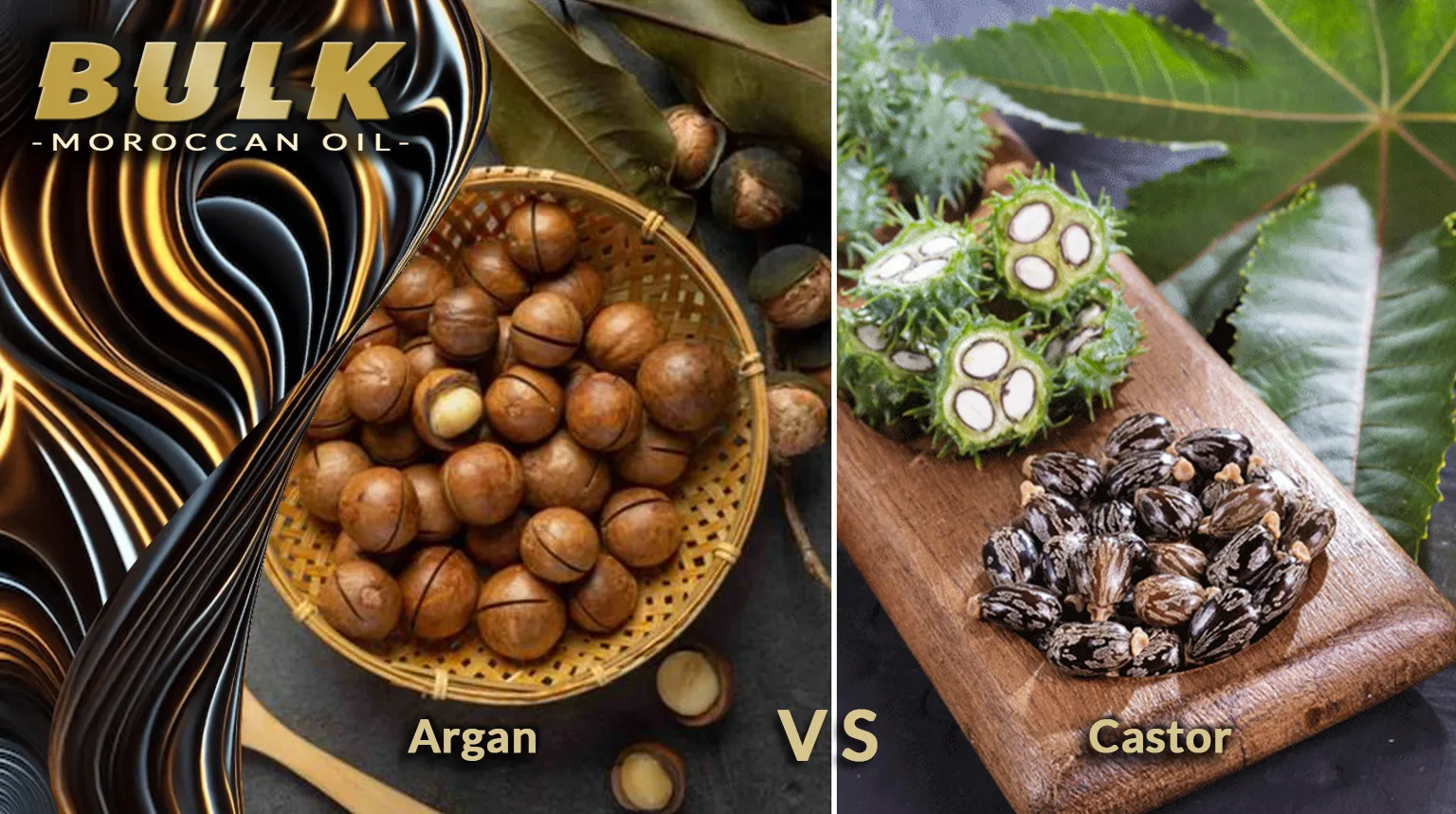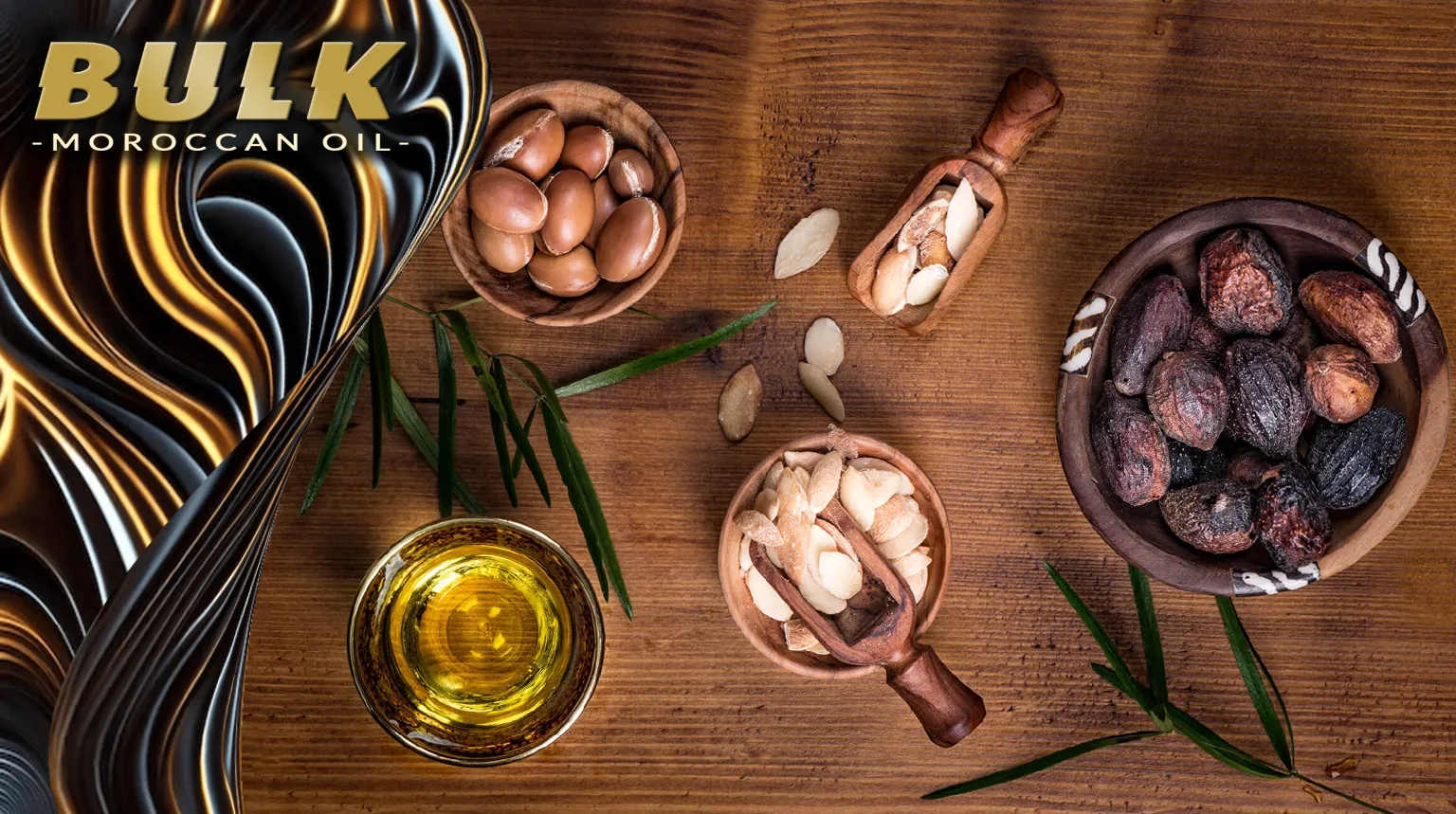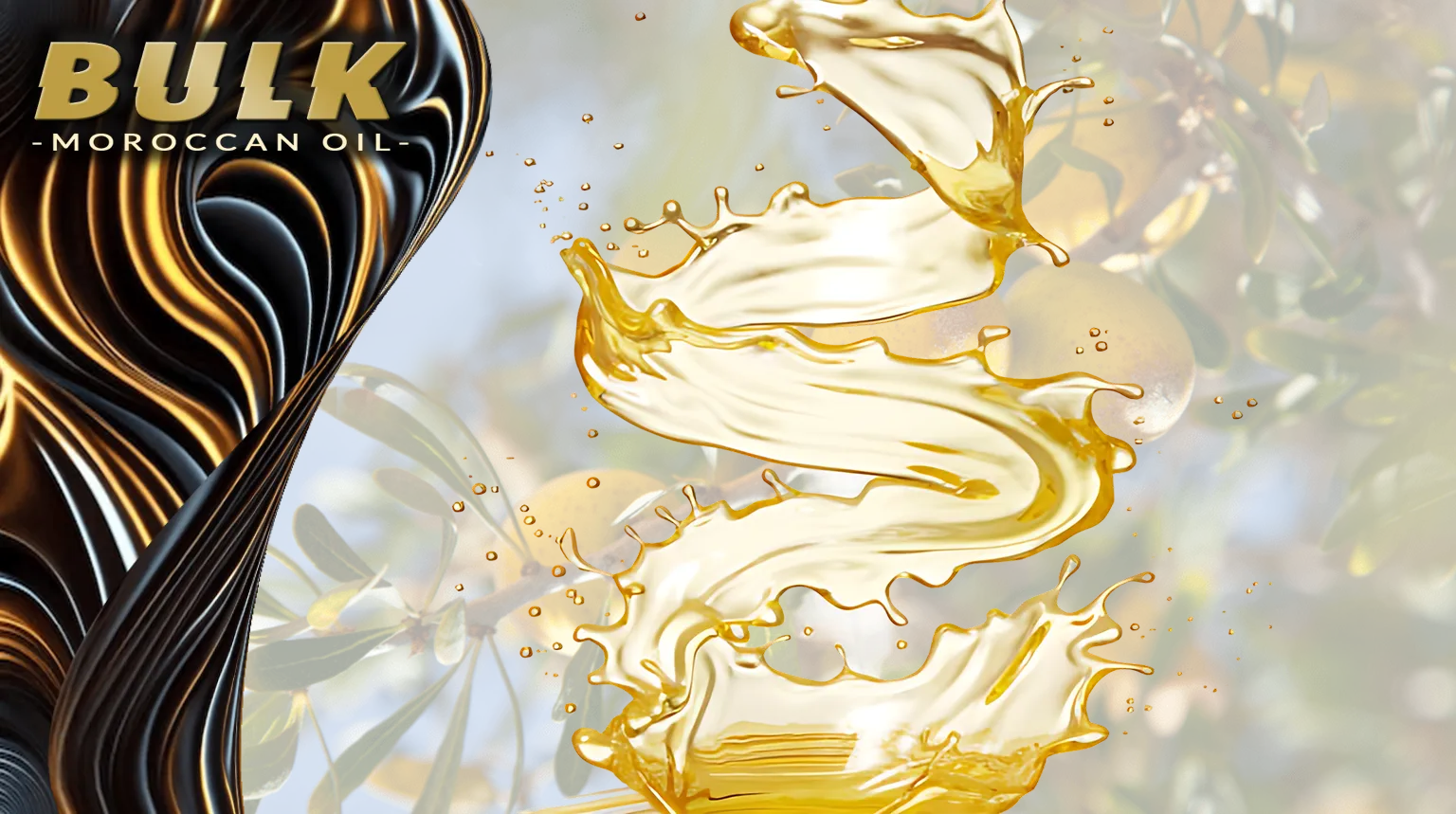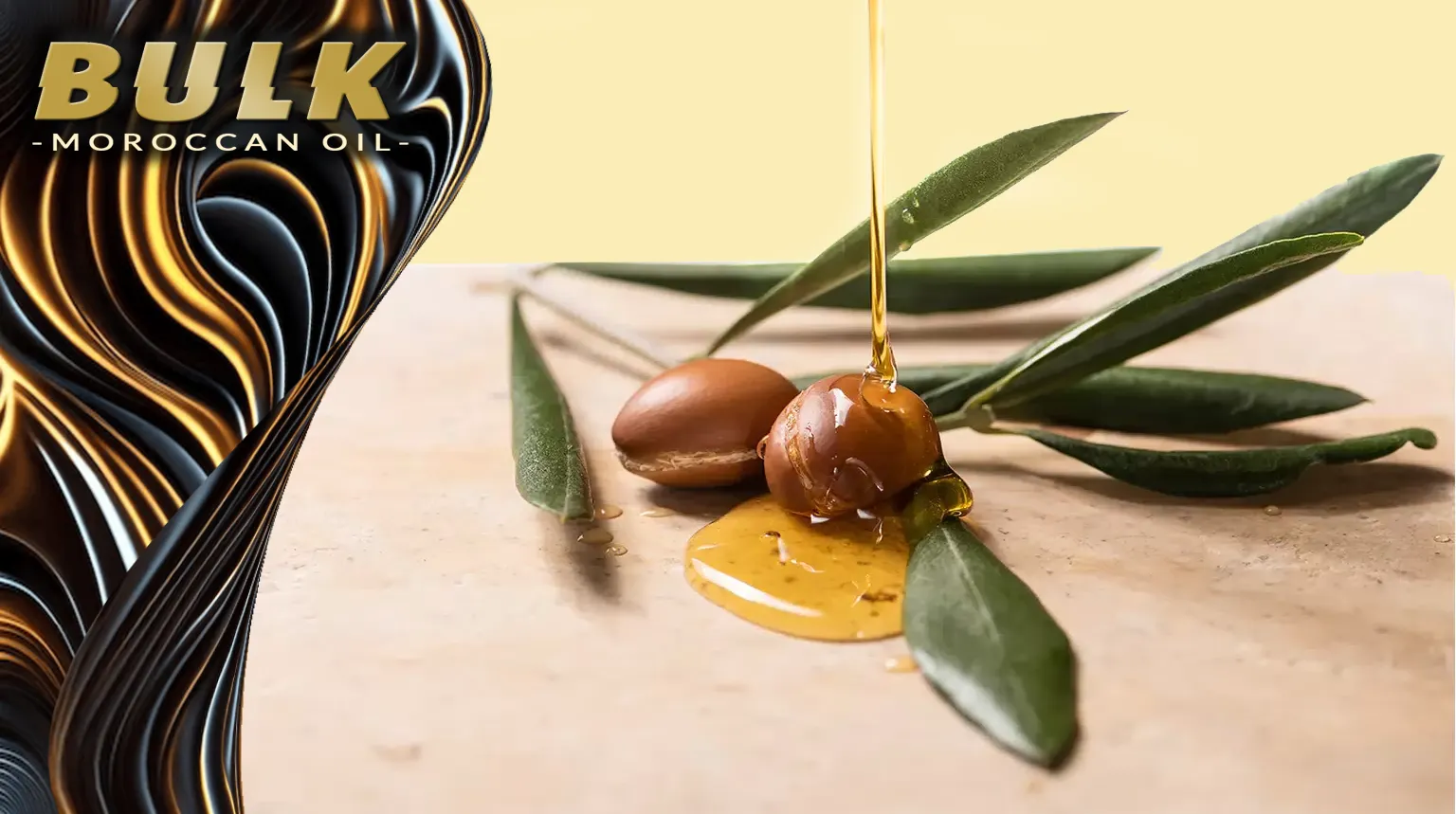The Secret to Hair Growth: The Benefits and How to Use Argan Oil for Hair Loss
If you are grappling with hair loss and have tried various solutions with little or no success, it's time to turn your attention to Argan oil, a natural remedy used for centuries to promote hair growth and combat hair loss. Argan oil is a game-changer in hair care, from moisturizing the hair and scalp to improving scalp health to preventing styling and coloring damage. Let's dive deep into the wonders of this 'liquid gold' and how it can help your hair grow and keep healthy hair.
Content List
1. Understanding Argan Oil
2. Can Argan Oil Stimulate Hair Growth?
3. Moisturizes and Conditions
4. Improves Scalp Health
5. Prevents Styling and Coloring Damage
6. Offers Sun Protection
7. How to Use Argan Oil for Hair Growth
8. Choosing the Best Argan Oil for Hair
9. An Ounce of Prevention: Argan Oil for Hair Loss
10 Conclusion
This blog is brought to you by BULK Moroccan Oil; Argan Oil Wholesale, your supplier for bulk Argan oil products.
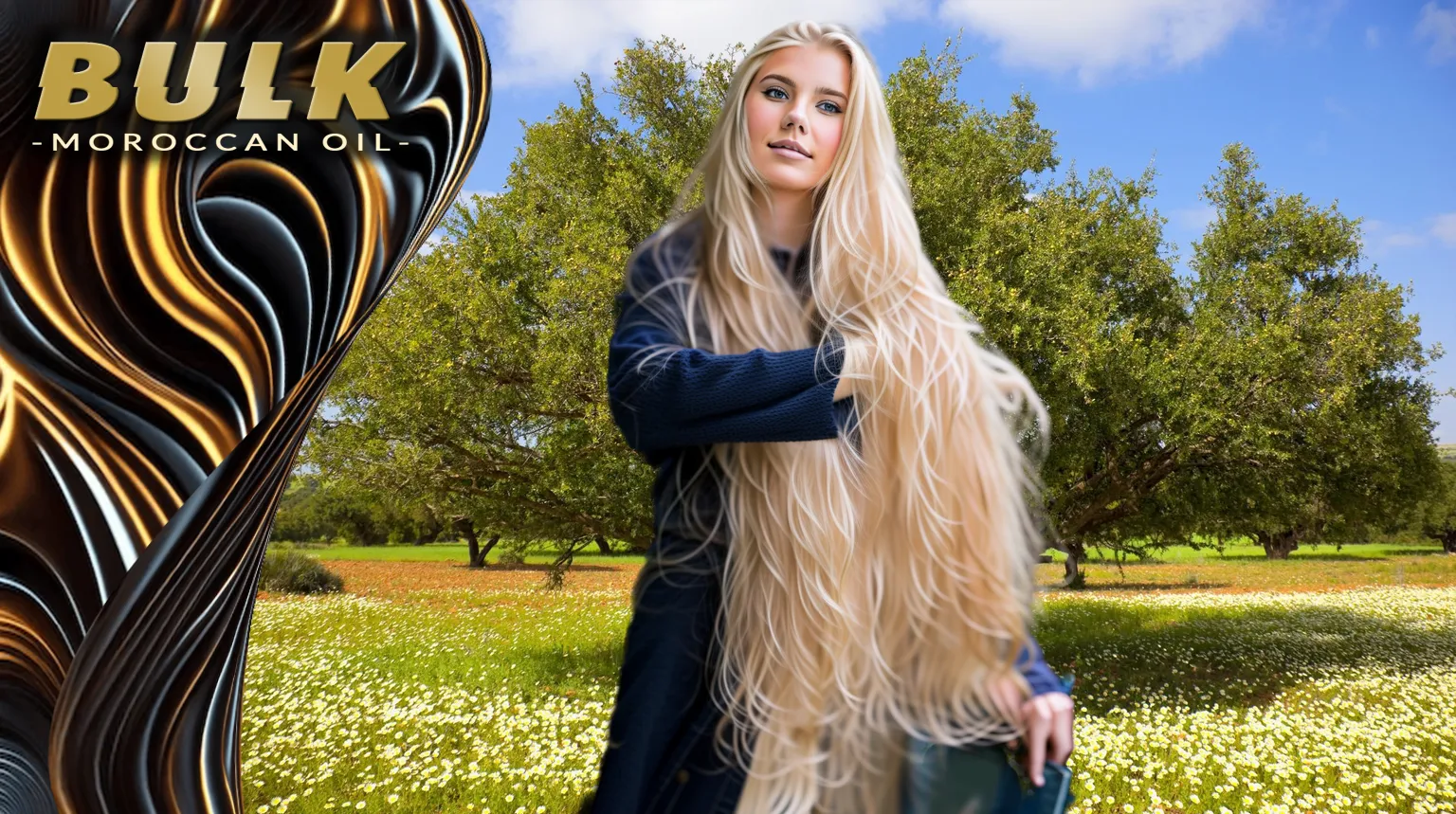
Understanding Argan Oil
Moroccan Argan oil, made from the fresh kernels of the Argan tree's fruit in Morocco, has been used for centuries for cooking and as a home remedy for health and beauty. Today, it has found its place in various hair and skin care products, providing numerous benefits to the skin and hair.
Can Argan Oil Stimulate Hair Growth?
With its rich content of fatty acids and powerful antioxidants, such as vitamin E, Argan oil has several benefits for your scalp and hair, many of which have been shown to help protect against thinning hair and hair loss.
Moisturizes and Conditions
Argan oil serves as a wonderful moisturizer for skin and hair, courtesy of its rich content of fatty acids, mainly oleic acid and linoleic acid. A few drops of Argan oil have been shown to lubricate the hair shaft, stimulate the hair follicles and maintain moisture, reducing hair breakage.
Improves Scalp Health
Argan oil is known for its anti-inflammatory and antioxidant properties that benefit the skin, including the scalp. It can help prevent or improve skin conditions, like psoriasis and seborrheic dermatitis, that can lead to hair loss.
Prevents Styling and Coloring Damage
Argan oil is also an excellent ally against hair dye damage. Rich in antioxidants, argan oil counters the oxidative stress caused by chemical treatments. Research on argan oil has shown that it can directly limit the harm caused by hair dyes. It forms a fatty layer around your hair shaft, minimizing the harmful effects of the chemicals in hair colors. The preventing qualities make Argan oil one of the best hair care products.
Offers Sun Protection
Moroccan women have traditionally used Argan hair oil to protect their skin from sun damage. This benefit also extends to the hair, protecting the hair from the sun and helping to prevent drying and other damage from ultraviolet rays.
How to Use Argan Oil for Hair Growth?
Ready to harness the benefits of Argan oil for your hair? Here are a few ways to apply Argan oil:
Argan Oil Hair Mask
An Argan oil hair mask is an easy and effective way to nourish your hair. You can also consider adding argan oil to hair masks and other beneficial ingredients like coconut or castor oil. This combination provides extra moisture to the hair and amplifies the benefits of argan oil for hair health. It's easy to ensure your hair remains moisturized, protecting it from damage and breakage.
Argan Oil Shampoo
While Argan oil shampoos are readily available, making your own Argan oil-enriched shampoo is quite simple, and you can control the amount of oil you use.
Leave-in Conditioner
Additionally, argan oil can be applied to the hair as a leave-in conditioner post-wash, which allows the oil to penetrate deeper into the hair fibers, increasing its effectiveness in promoting hair health and preventing hair loss. A study on the effect of tocotrienol, a member of the vitamin E family found in argan oil, showed improved hair growth, making argan oil an excellent natural treatment for hair loss.
Styling Product
Argan oil can double up as a styling product, helping to smooth hair, reduce frizz, and protect your hair from heat styling.
Choosing the Best Argan Oil for Hair
The key to reaping the full benefits of Argan oil for hair loss and hair growth is to choose a good quality, pure Argan oil product. While it may cost more, the long-term benefits it brings to your hair health make it an investment worth making.
An Ounce of Prevention: Argan Oil for Hair Loss
Argan oil, with its powerful antioxidants and nourishing fatty acids, can help moisturize your hair, reducing breakage and shedding. Not only does it protect against styling damage and free radicals, but it also aids in promoting healthier, thicker, and fuller hair. With its multiple benefits, argan oil is great for hair care, making it less likely for your hair to suffer from common issues like dryness and split ends. Regular use of argan oil can lead to healthier, stronger, and shinier hair, making it one of the best natural hair growth treatments.
.
Key Takeaways:
- Argan oil, often called 'liquid gold,' is a potent natural solution for dry hair, hair loss, and growth.
- Its rich content of antioxidants and fatty acids moisturizes the hair, improves scalp health, prevents damage from styling and coloring, and offers sun protection.
- It is versatile and can be used in different ways – as a hair mask, in a shampoo, as a leave-in conditioner, and even as a styling product.
- Choosing pure, good quality Argan oil is crucial for optimal benefits.
- With its proven benefits for hair and scalp health, Argan oil may prevent hair loss and promote healthier, thicker, fuller hair.
Conclusion
Argan oil is a potent weapon in the fight against hair loss. Its numerous benefits go beyond just promoting hair growth and preventing hair loss, providing a comprehensive solution for hair care. If you're searching for a natural, versatile, and effective solution for hair loss, Argan oil could be your answer!
References:
Please note: Always consult a healthcare provider before starting any new hair care regimen or treatment. While the information provided here is meant to be informative, it should not replace medical advice.
Hashtags:
#ArganOil #HairLoss #HairGrowth #UseArganOil #PreventHairLoss #BenefitsOfArganOil #ArganOilForHairGrowth #ArganOilHairMask #ImproveScalpHealth #StylingDamage #SunProtection #ArganOilShampoo #HairCare #HairAndScalpHealth #ArganOilBenefits
Frequently Asked Questions
Q: What are the benefits of using Argan oil for hair?
A: Argan oil is rich in vitamins and antioxidants that help nourish and hydrate hair, making it softer, smoother, and more manageable.
Q: How does castor oil compare to Argan oil for hair?
A: Castor oil has a reputation for promoting hair growth and thickness, while Argan oil is high in vitamin E and fatty acids that improve the overall health of the hair.
Q: Can castor oil be used as a substitute for Argan oil in hair products?
A: Yes, some people use castor oil as a substitute for Argan oil in their hair care routine due to its moisturizing and nourishing properties.
Q: How often should I use Argan oil or castor oil in my regular hair care routine?
A: It is recommended to use Argan oil or castor oil on your hair 2-3 times a week to see the best results without overloading your hair with too much oil.
Q: Will using castor oil make my hair greasy?
A: Castor oil may make your hair greasy if too much is applied, so it's important to use it sparingly and focus on the ends of your hair rather than the roots.
Q: Can castor oil help with hair problems like dandruff or hair loss?
A: Castor oil isn't proven to treat dandruff, but its moisturizing properties can help with dry scalp. It may also promote hair growth, which could benefit hair loss.
Q: Are there any known side effects of using Argan oil or castor oil on the hair?
A: Both Argan oil and castor oil are generally safe to use on hair, but individuals with specific allergies or skin conditions should be cautious and perform a patch test before regular use to avoid any skin infections like eczema.














